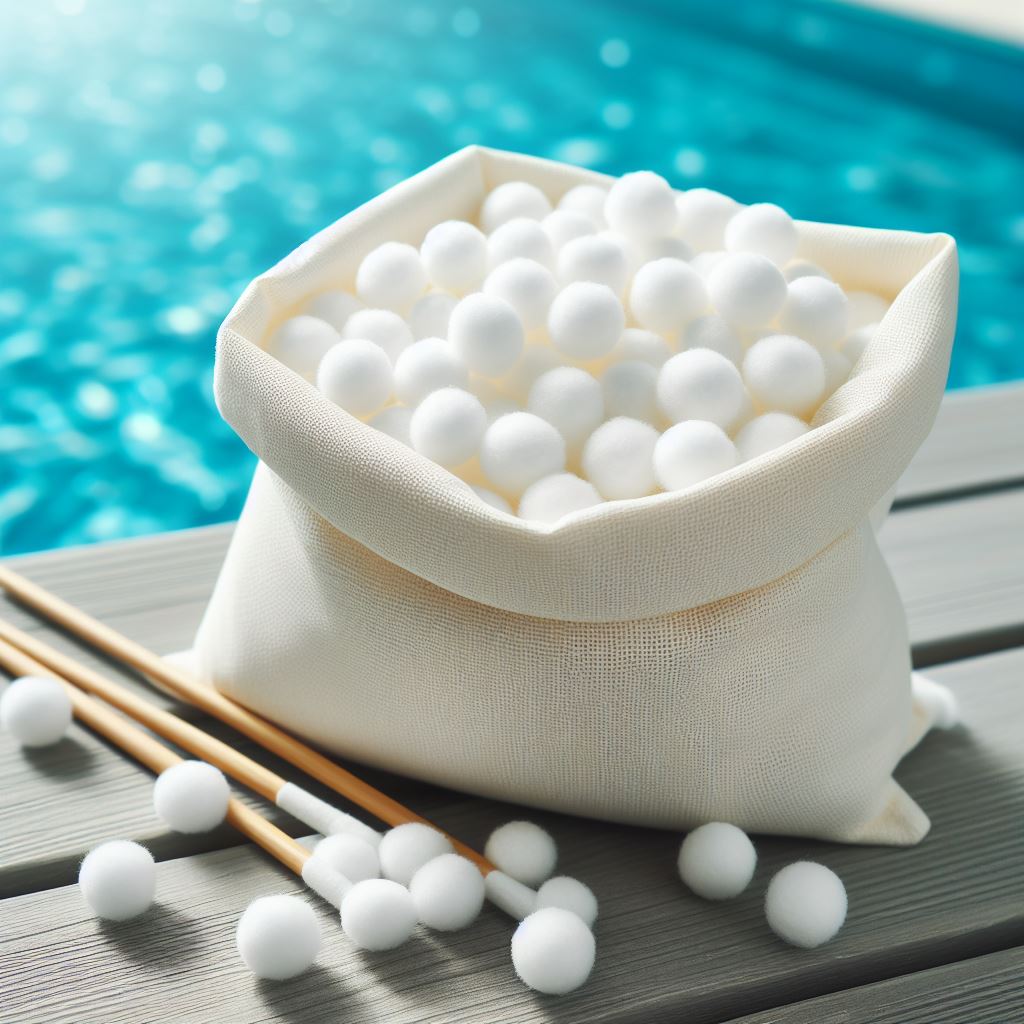Pool filter balls and sand filter media both have their unique advantages and applications. The choice of filter media depends on the pool size, water quality requirements, budget, energy efficiency, and personal maintenance preferences. Pool owners should select the most suitable filter system based on their specific needs and circumstances. This article primarily discusses the differences between pool filter balls and sand filter media, as well as their respective water treatment advantages.
Pool Filter Balls vs Sand Filter Media
Material and Structure
Pool Filter Balls: Pool filter balls are typically made from synthetic polymer materials such as polypropylene. They have a porous spherical structure with numerous tiny pores and channels.
Sand Filter Media: Sand filter media commonly uses silica sand or other granular materials like glass particles. These particles are filled in a container, forming a sand bed.
Filter Efficiency
Pool Filter Balls: The porous structure and larger surface area of pool filter balls enable them to more effectively capture tiny particles, bacteria, and microorganisms, providing higher filter efficiency.
Sand Filter Media: The filter efficiency of sand filter media is relatively lower and usually cannot capture particles as small as pool filter balls.
Cleaning and Maintenance
Pool Filter Balls: Pool filter balls are relatively easy to clean, usually requiring periodic rinsing or soaking to remove dirt adhering to the surface.
Sand Filter Media: Sand filter media needs periodic “backwashing” or cleaning procedures to remove dirt trapped in the sand bed, requiring more water and energy.
Energy Efficiency
Pool Filter Balls: Due to reduced water flow resistance from their porous structure, pool filter balls typically require lower pump power, enhancing energy efficiency.
Sand Filter Media: Sand filter media usually requires higher pump power to push water through the tightly packed sand.
Applicability
Pool Filter Balls: Suitable for those seeking efficient filtration, clear water, and water conservation, especially for pools with high requirements for microbial and bacterial control.
Sand Filter Media: Sand filter media may be more suitable for those with limited budgets, not requiring extremely high filtration efficiency, or owning large pools.
Initial and Maintenance Costs
Pool Filter Balls: Pool filter balls usually have higher initial purchase costs but relatively lower maintenance costs.
Sand Filter Media: Sand filter media has lower initial purchase costs, but maintenance costs may accumulate over the long term.

Advantages Comparison between Pool Filter Balls and Sand Filter Media
Advantages of Pool Filter Balls
- High Filtration Efficiency: Pool filter balls effectively capture tiny particles, bacteria, and microorganisms, crucial for maintaining clear water.
- Water Resource Conservation: Due to requiring less water for cleaning and maintenance, pool filter balls contribute to saving precious water resources, making them advantageous for environmentally conscious individuals.
- Energy Efficiency: The porous structure reduces water flow resistance, leading to lower pump power requirements and improved energy efficiency.
- Relatively Easy Maintenance: Pool filter balls are relatively easy to clean, usually requiring periodic rinsing or soaking to remove surface dirt.
Advantages of Sand Filter Media
- Low Initial Costs: Sand filter media generally has lower initial purchase costs, making it advantageous for those with limited budgets.
- Relatively Low Maintenance: While periodic backwashing is necessary, the maintenance requirements for sand filter media are relatively low, without frequent maintenance tasks.
- Suitable for Large Pools: As sand can handle more water by increasing the amount of sand, sand filter media is suitable for large pools without requiring excessive maintenance.
- Longer Lifespan: Sand filter media typically has a longer lifespan, reducing the frequency of replacements and associated maintenance costs.
Conclusion
In conclusion, the choice between pool filter balls and sand filter media depends on individual needs and circumstances. If you prioritize efficient filtration, clear water, water conservation, and energy efficiency, pool filter balls may be the better choice. However, if you have budget constraints, do not require extremely high filtration efficiency, or have a large pool, then sand filter media may be more suitable. The optimal choice depends on the importance and priority you place on water quality, costs, and maintenance.

